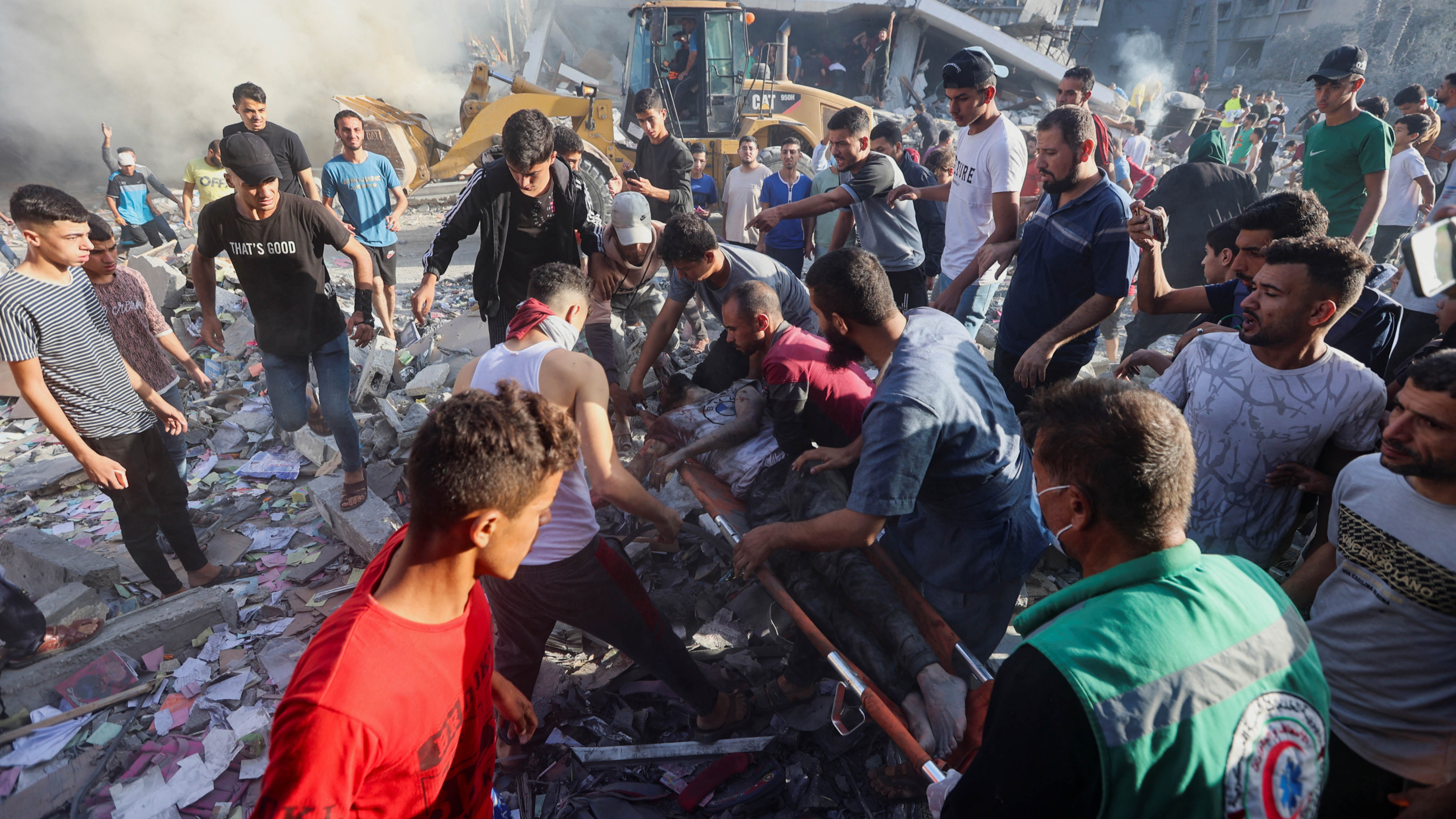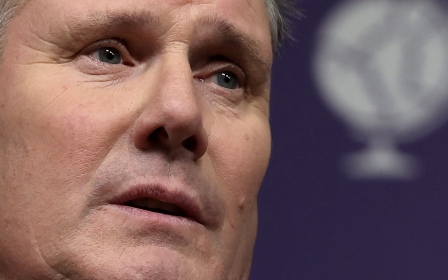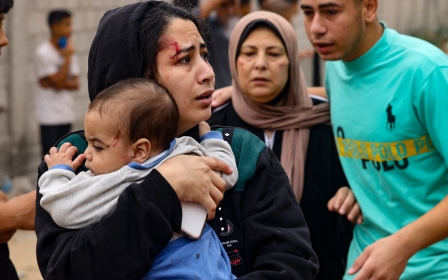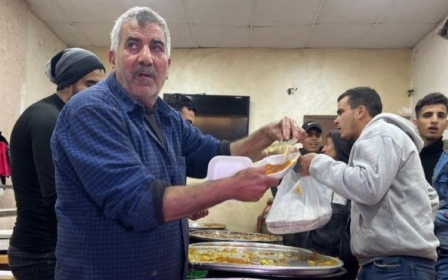Israel-Palestine war: Israel commits 'new massacre' in Gaza as Netanyahu vows 'indefinite' security control
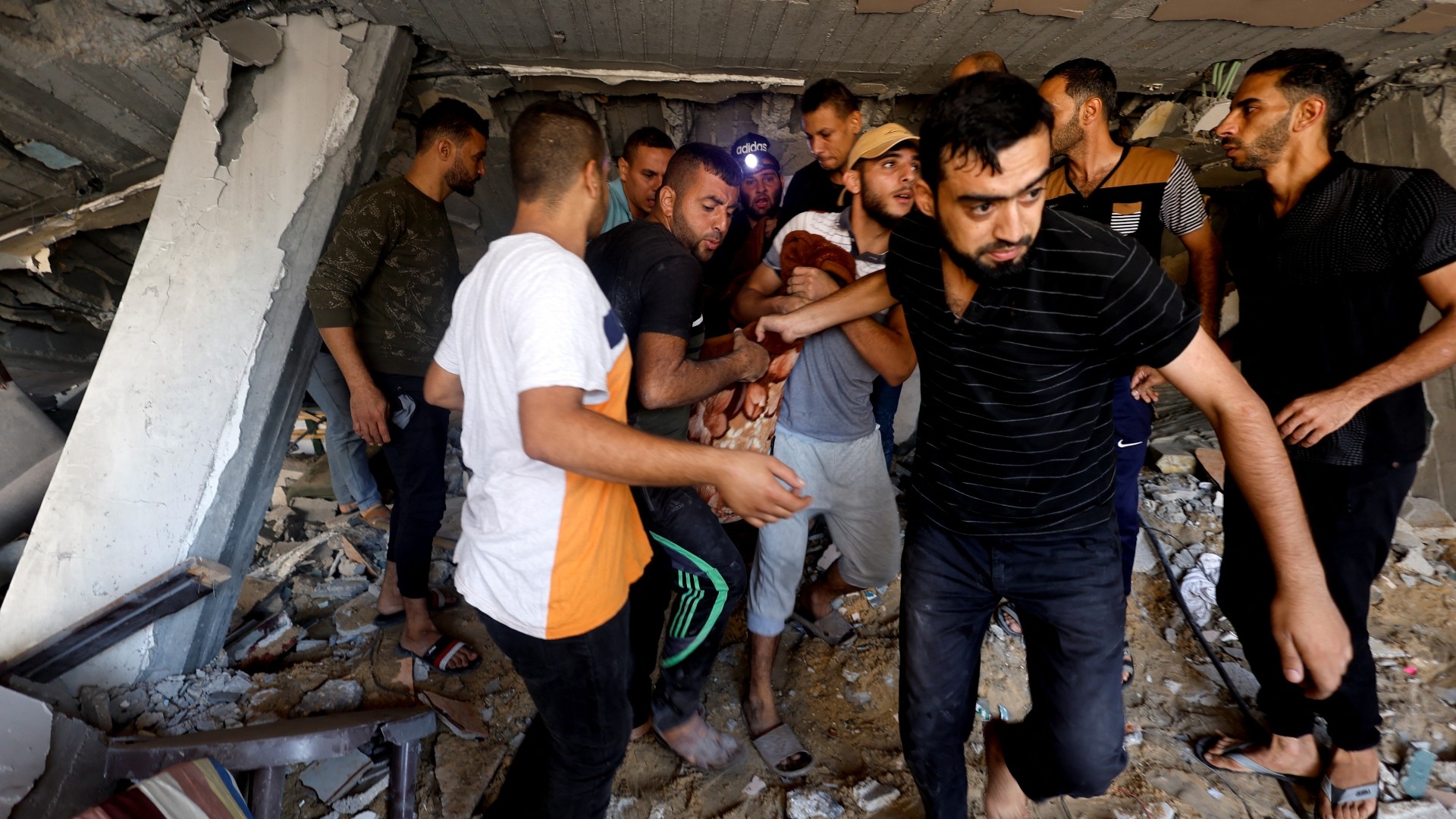
The Israeli military killed "dozens" of civilians in central Gaza's Deir al-Balah on Tuesday in what the Palestinian health ministry described as a "new massacre", as Benjamin Netanyahu said Israel will maintain "indefinite" security control over the coastal enclave.
The strike on Deir al-Balah, a heavily populated town in an area that Israel told residents of northern Gaza to move to if they wanted to stay alive, came exactly a month after the Israel-Palestine war broke out.
According to Palestinian media, the victims of the raid were mostly women and children. More than 10,300 Palestinians have been killed by Israeli bombardment over the past month, including over 4,000 children.
On average, a Palestinian child was killed every 10 minutes over the past month, according to the health ministry.
The shelling has intensified during the nights and in communication blackouts, residents say, causing an unprecedented scale of destruction.
New MEE newsletter: Jerusalem Dispatch
Sign up to get the latest insights and analysis on Israel-Palestine, alongside Turkey Unpacked and other MEE newsletters
As well as a full siege imposed by Israel on 9 October, which resulted in the cutting off of all water, electricity, food, aid, fuel and electricity supplies, Israeli bombing is now targeting bakeries, supermarkets, water tanks and solar panels.
Aid has been slow to trickle in, with the whole month’s supply being equivalent to what used to enter the besieged Strip in a single day before the war.
On the ground, people are complaining about kidney pain, dehydration and hunger due to the lack of supplies, while surgery is still being performed without any form of anaesthetic.
The non-profit Euro-Med Monitor says that Israel is now “waging an extensive war of starvation against Gaza’s civilian population,” and that it has “taken very dangerous turns”.
The monitor said: “Israel has deliberately focused its attacks over the past few hours on targeting electrical generators and solar energy units, on which commercial facilities and restaurants depend to maintain the minimum possible level of their work.”
Conditions have been bleak all across the Strip, with the UN agency Unrwa saying that at least 600 people are using one toilet. Elsewhere, 50,000 pregnant women need assistance as 16 out of 35 hospitals have stopped working.
The past month has also been deadly for journalists. At least 48 journalists have been killed in Gaza by Israel since the start of the war, which the Committee to Protect Journalists has declared to be the deadliest period for journalists worldwide since 1992.
International media offices have also been caught up in the bombings. A photo shared by an AFP journalist on Tuesday showed the extent of damage done to the news agency's Gaza office following an Israeli air strike.
Drone strikes in the West Bank
In the occupied West Bank, the situation has also intensified, with explosions reported in the Tulkarm refugee camp, where armed vehicles were spotted moving through the camp.
Drone strikes also rained down, killing two young men as a result of missile fragments.
The Wafa news agency said that violent confrontations took place between young men and Israeli soldiers, while an Israeli bulldozer destroyed parts of the main streets in the camp.
At least 160 people have been killed in the West Bank since the start of the October hostilities.
Since the start of the war, Israeli Prime Minister Benjamin Netanyahu has maintained that he will continue to reject a ceasefire until Hamas releases all of the hostages it is holding. However, he said he was open to accepting “tactical little pauses” in Gaza for humanitarian aid flow, for an hour, sporadically.
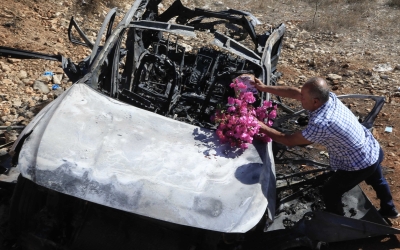
The comments were not well received by China and the United Arab Emirates (UAE), who released a joint statement at the United Nations calling for an immediate ceasefire.
In response to Israeli military spokesperson Daniel Hagari’s claims, Indonesia denied that a hospital built in Gaza using Indonesian funding sits atop a network of Hamas tunnels and is located near a launchpad for rocket attacks.
Russia has also weighed in on an Israeli minister’s comments, who said that using a nuclear bomb on Gaza was “an option”.
Maria Zakharova, Russia's foreign ministry spokeswoman, said the remark by Israeli Heritage Minister Amihay Ben-Eliyahu "raised a huge number of questions" and that international nuclear inspectors should be sent to Israel to investigate.
In Lebanon, another three members of Lebanese Hezbollah were killed amid escalating clashes between the group and the Israeli military.
Hezbollah released three separate statements on Monday announcing the death of members killed in clashes with Israel, bringing the total killed since the outbreak of war to 63.
Egypt says removing Hamas 'unrealistic'
Meanwhile, Middle East Eye reported on Monday that Egypt is telling the US that Israel’s stated goal to remove Hamas from governing the Gaza Strip is "unrealistic".
Sources familiar with the matter said that the warnings are communicated regularly by Egyptian officials, who are pushing back against US suggestions that Egypt take on a potential future security role in the besieged enclave, and Israeli calls to accept a forced displacement of Palestinians into Sinai.
"The war, and Israel's more aggressive actions and statements, have made Egypt … and most Arab countries rethink their policies toward Israel," Ayman Zaineldine, a former senior Egyptian diplomat, told Middle East Eye.
Egypt has rejected a plan, as previously reported by MEE, whereby it would manage security of the Gaza Strip until the Palestinian Authority could take over - if and when Hamas is defeated.
“I have no doubt Egypt will not allow Israel to outsource security of the Gaza Strip … That would make Egypt complicit in Israel’s illegal occupation," added Zaineldine, who reiterated the plan would pose a "direct threat" to Egypt’s national security.
Middle East Eye delivers independent and unrivalled coverage and analysis of the Middle East, North Africa and beyond. To learn more about republishing this content and the associated fees, please fill out this form. More about MEE can be found here.


